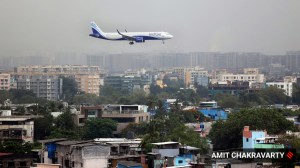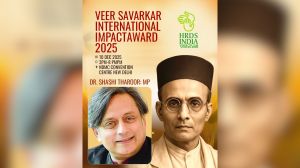Experts opine vertical split in Hizbul Mujahideen
NEW DELHI, AUG 10: Several experts on Indo-Pakistan relations today hinted that the Hizbul Mujahideen (HM) would split vertically and the ...

NEW DELHI, AUG 10: Several experts on Indo-Pakistan relations today hinted that the Hizbul Mujahideen (HM) would split vertically and the withdrawal of ceasefire by the HM was only a “brief halt” to the ongoing process of bringing back peace in Jammu and Kashmir.
Deputy Director of Institute of Defence and Strategic Analysis (IDSA) Kapil Kak said the first and foremost cause for withdrawal of the ceasefire was an “extensive pressure on the Hizbul Mujahideen from other militant groups including the Lashker-e-Toiba and radical elements within the Pakistani Army”.
“The withdrawal of the ceasefire offer is not a full-stop to the peace process, but only a comma," says Kak.
He said there were enough indications that the militant outfit working in Kashmir might break away from their masters in Islamabad as they had understood that people in Kashmir were only for peace.
Another expert, K Sreedhar of IDSA, said that the announcement of unilateral ceasefire was a Pakistani plan “as Islamabad is desperate to hold talks with India”.
“Pakistan had apparently thought that either India would turn the offer down or accept involving Islamabad in talks,” he said.
Sreedhar also said there would be a cleavage between commanders operating in the Valley and those in Islamabad.
Referring to the ceasefire-withdrawal, Sreedhar blamed the “Talibanisation of the Pakistani Army” and said “if Pervez Musharraf has to rule that country, he has to keep such elements happy”.
According to Maj. Gen. (Retd) Ashok Krishna of the Institute for Peace and Conflict Studies, the ceasefire call itself was a move, declared without taking the practical aspects like working out the modalities.
Expressing doubts over the intentions of the militant organisation to usher in peace, he said, “India would have to get the better of the militants. Only then will they be able to bargain from a position of strength.”
Drawing comparisons with the Arab-Israeli dispute, he said, “It took them more than 50 years to talk. How can we expect the peace-process in the case of Kashmir to take only a fortnight?”
Kapil Kak also feels that sharp differences have surfaced in the Hurriyat Conference also with even a division in its main constituent — Jamaat-e-Islamia — where JeI Amir G M Bhat favours talks, while former chairman Amir Syed Ali Shah Geelani continues to tow the Pakistani line.
He said Bhat was quite impressed with the statement of Prime Minister Atal Bihari Vajpayee suggesting that “talks would be held within the framework of Insaniyat (Humanity)”.
He feels that this statement is a good olive branch for HM chief commander in Srinagar Abdul Majid Dar to hang onto and continue the peace process.
- 01
- 02
- 03
- 04
- 05































